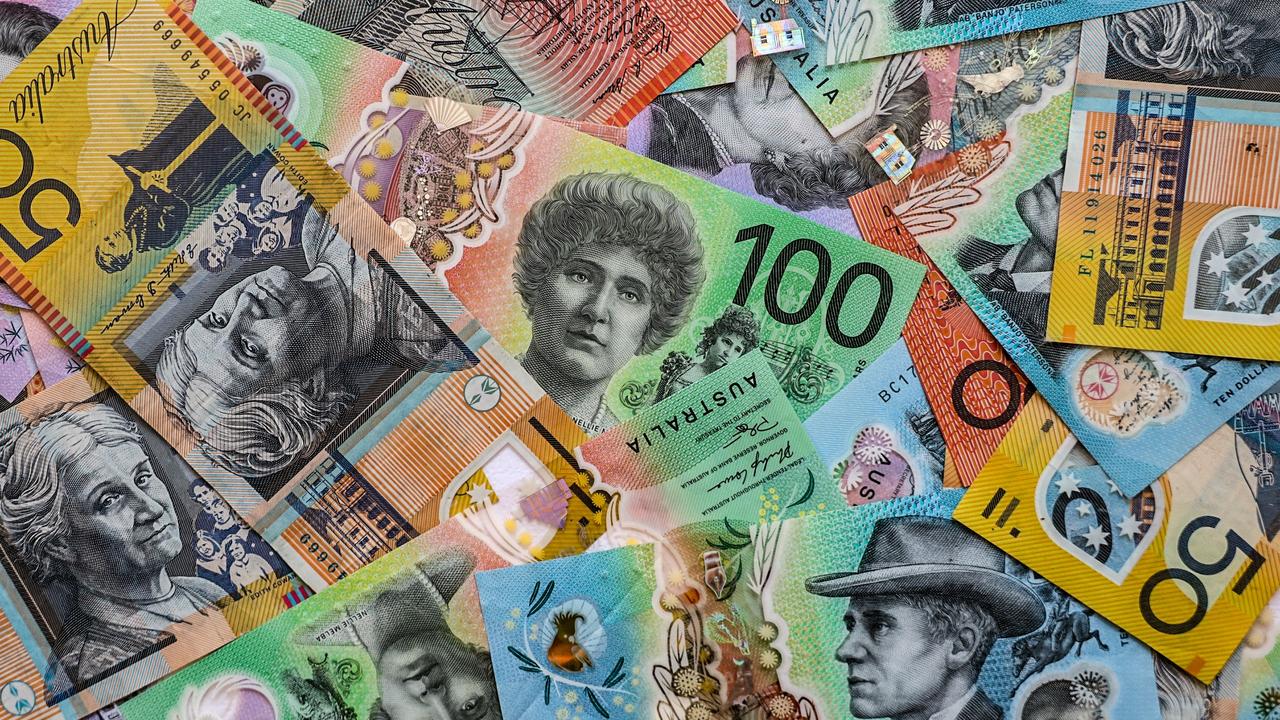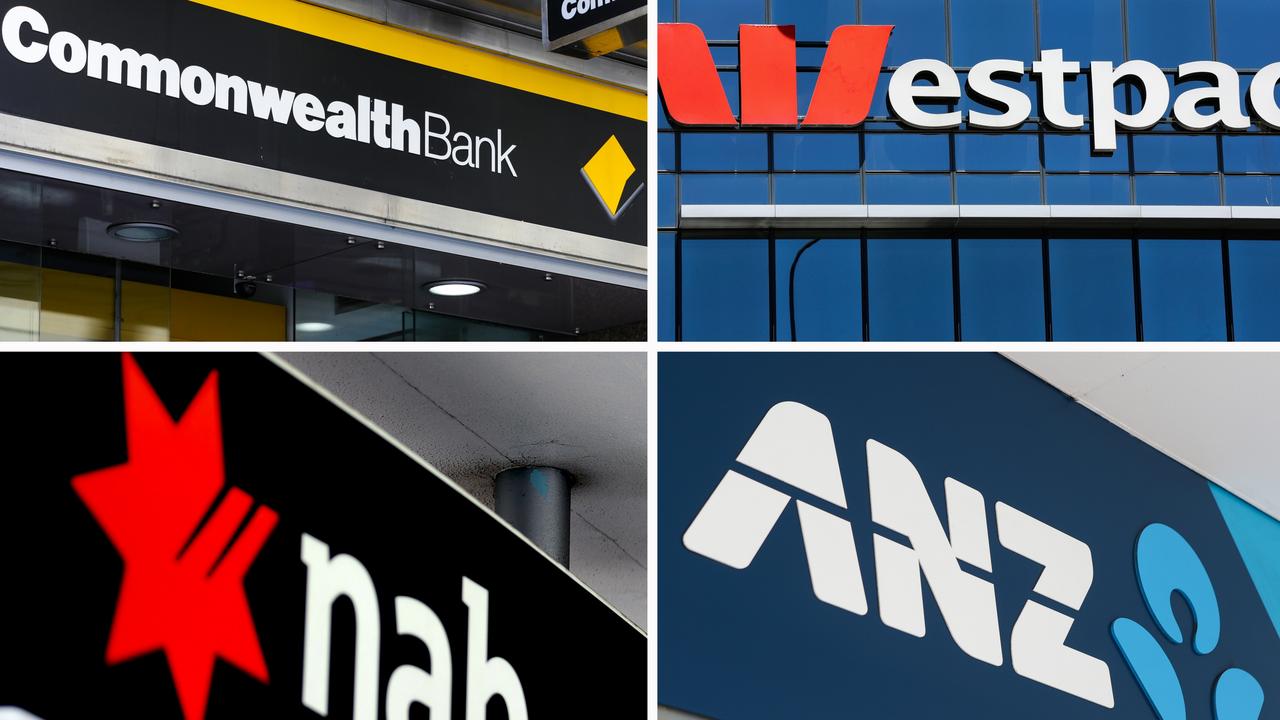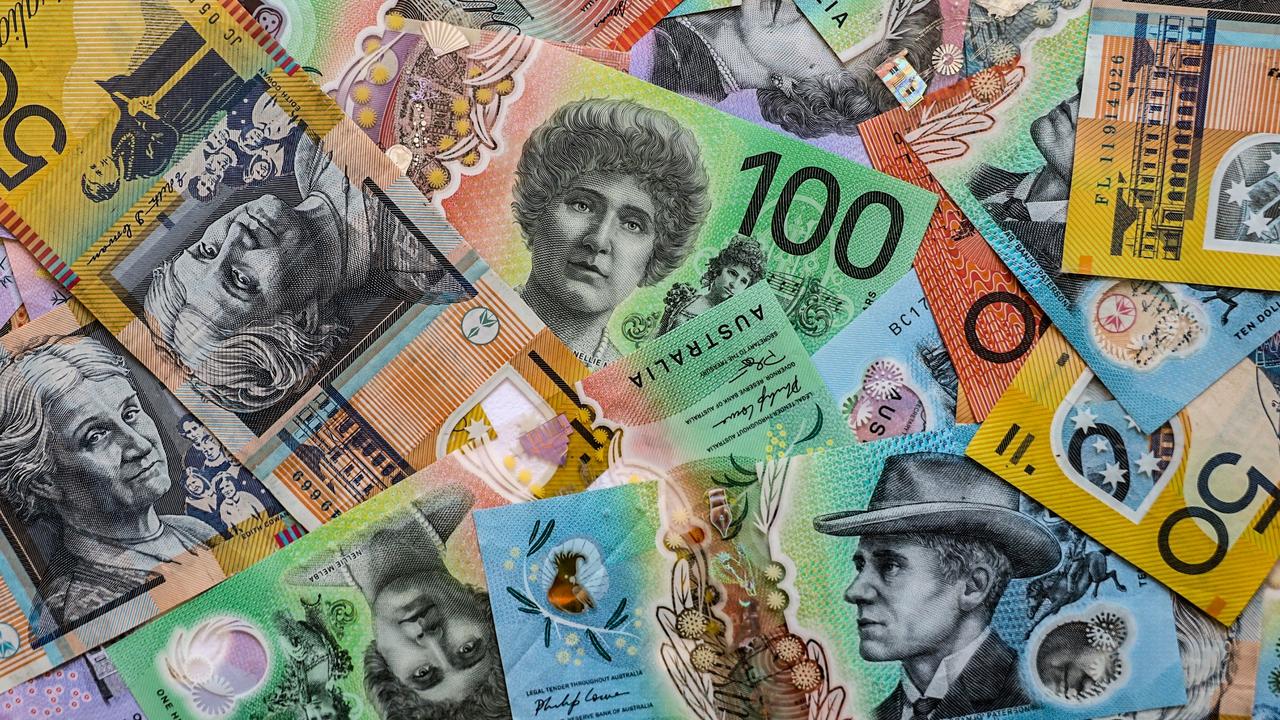Federal election 2019: Prime Minister Scott Morrison confirms May 18 election date
The Deputy Opposition Leader laughed at an odd comment made by the Prime Minister — until she was asked if she thought it was true.
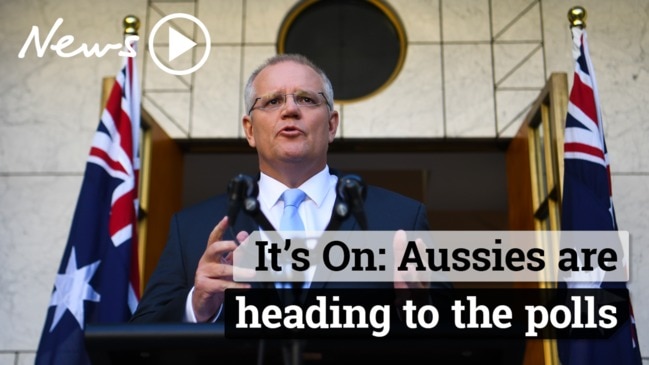
Deputy Opposition Leader Tanya Plibersek has emphasised her commitment to Bill Shorten, hours after the Prime Minister declared a “vote for Labor was a vote for Bill Shorten”.
Appearing on the ABC this afternoon, Ms Plibersek let out a laugh when the blatantly obvious comment was brought up by journalist Patricia Karvelas.
“Is that a selling point in his view?” Ms Plibersek asked after chuckling on camera.
“You might laugh but it is based on focus group and polling results they are getting that Bill Shorten is a liability for your side of politics,” Karvelas responded.
“Do you accept Bill Shorten is a problem for Labor?”
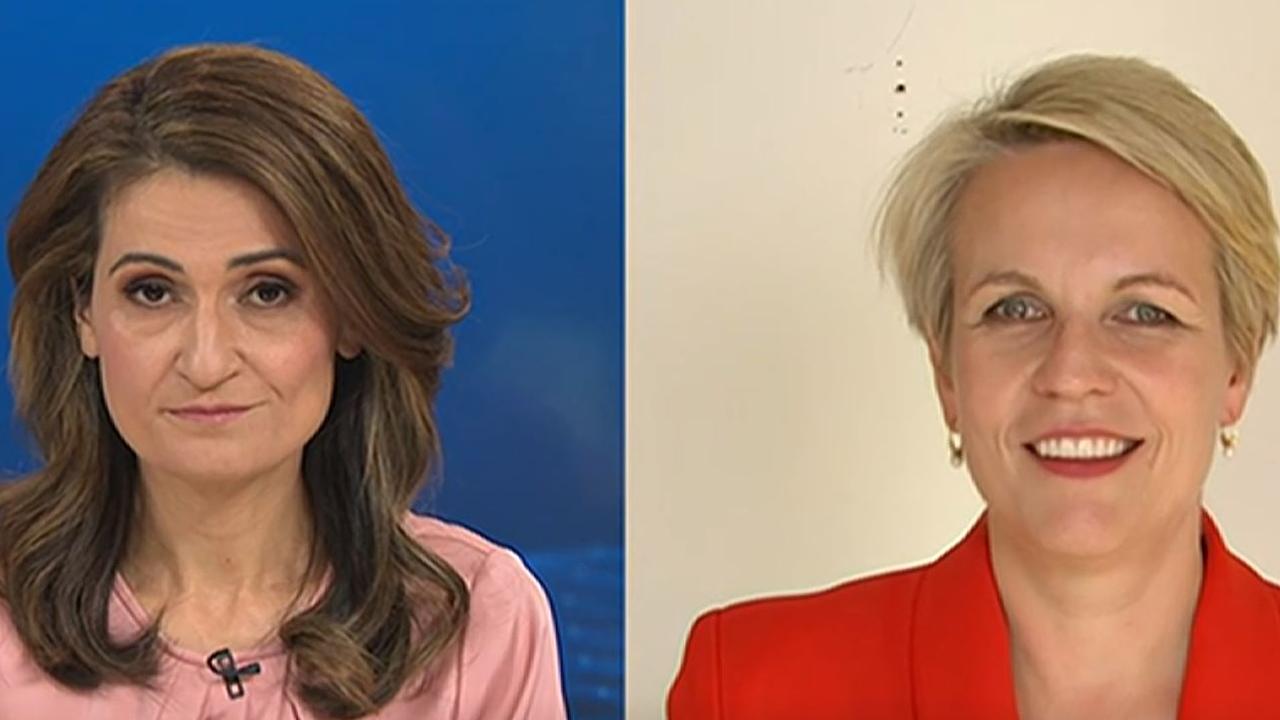
Putting on a straight face, Ms Plibersek quickly denied Mr Shorten was a “liability” for the party.
“Not at all,” Ms Plibersek said.
“The reason we are stable and united is because of Bill’s leadership. The reason we have such a comprehensive agenda to take us into government, if we are successful, is because of Bill’s leadership.
“He has got a very experienced team that is united and stable. The Liberals in contrast have had three Prime Ministers and three treasurers and are at each other’s throats. The only thing they are on about is making sure their mates get a job.”
Bill Shorten has led the Labor Party for six years.
THE PRIME MINISTER WILL ‘CAMPAIGN ON FEAR’
South Australian Labor Senator Penny Wong says the opposition in no way believes it has the federal election in the bag.
On the first day of the campaign for the May 18 poll, Senator Wong joined Nadia Clancy, the party’s candidate for the key marginal Adelaide seat of Boothby.
“I know that the coalition are suggesting that we think we’ve got it in the bag,” she said in Glenelg.
“Well we don’t. We understand how hard it is to win government.”
Senator Wong said she expected Prime Minister Scott Morrison to “campaign on fear” in the lead-up to the poll.
“He can’t campaign on his record because his record is cuts and chaos,” she said.
“He can’t campaign on stability because he hasn’t got any.
“The only thing that he can campaign on is fear.”
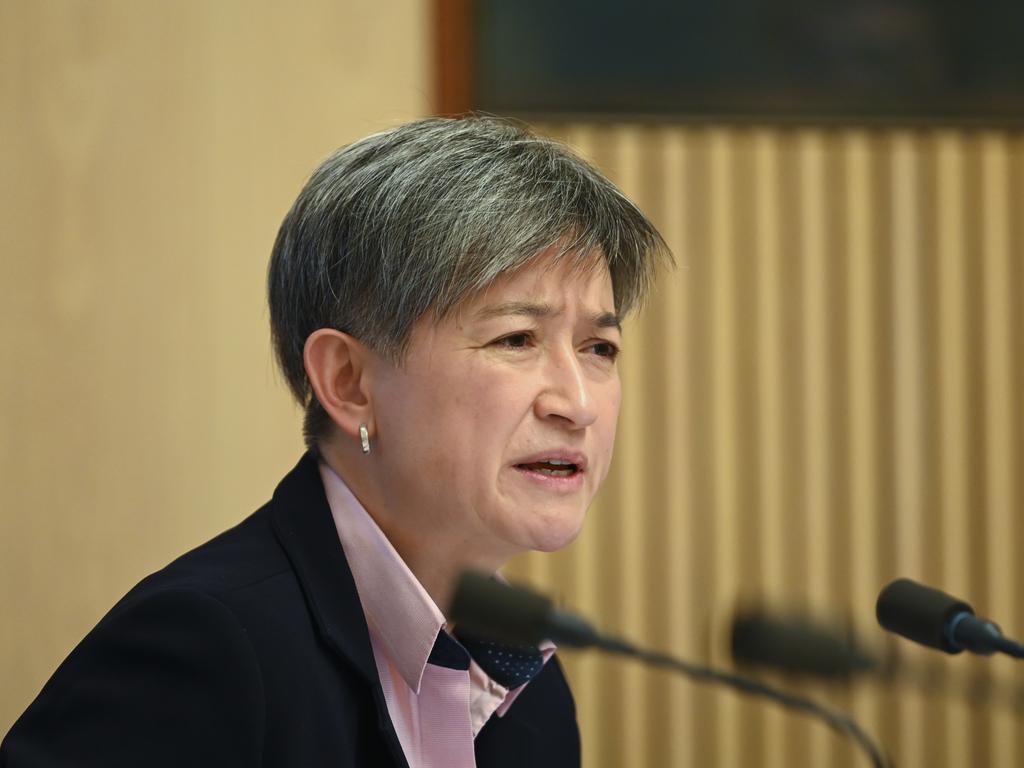
Senator Wong said Boothby, held by Liberal Nicolle Flint with a margin of just over two per cent, was critical for Labor.
But she said the party would campaign hard in every South Australian seat.
“We want to deliver a Labor government for Australia,” she said.
“We want to do deliver a Labor government that does the right thing by the Australian people on schools, hospitals, the river Murray and climate change.”
“Elections are hard fought and we know this is going to be a hard-fought election.”
Labor has not held Boothby since 1949, but Ms Clancy said she believed she could take it for Labor after a change in the seat’s boundaries.
“We now have a lot more people here who are keen for a change,” she said.
“I’m also up against someone who doesn’t reflect the values of people in this electorate the same way I do.”
‘LABOR’S ENERGY VS. THE GOVERNMENT’S TIREDNESS’
Opposition Leader Bill Shorten has urged Australians to choose Labor at the next election, saying the party knows “what Australians want”.
Speaking from the suburb of Mitcham in Melbourne, in response to Prime Minister Scott Morrison’s announcement of a May 18 election date this morning, Mr Shorten said Australians “face a real and vital choice” at the next election.
“Do you want Labor’s energy versus the Government’s tiredness?” he said. “Labor’s focus on the future versus being stuck in the past? Labor’s positive plan for all Australians or a negative fear campaign from the other side? Do you want a united Government under Labor or another three years of division following the last six years of division under the current Government?”
Mr Shorten cited Medicare and hospital investments, funding for higher education and assistance to property investors as among Labor’s key policies going into the next election.
He doubled down on Labor’s $2.3 billion plan to deliver an extra 3 million bulk-billed cancer consultations, saying: “Cancer makes you sick, but it shouldn’t make you poor.”
Finally, he pointed out that Australians are sick of the “revolving door of politicians being consumed by themselves”, stressing that Labor had been “united for the last six years”, compared to the Coalition’s three prime ministers in six years.
Mr Shorten rejected suggestions he sees himself as a clear frontrunner, saying “this election isn’t about the personalities... it’s about the people”.
Asked whether family would be affected by Labor’s negative gearing policy, he said: “No. Let’s be clear. Anyone who currently invests in property and they make a loss and get a tax subsidy paid for by everybody else, they are the current tax laws. The changes will not affect them.”
Asked whether he would encourage Queensland MPs to have a “full and frank debate” about the Adani mine, he said: “I don’t think it is any particular coincidence the government went to the Governor-General today on the day the CSIRO was going to be examined about its report into the Adani mine. You want to talk about gagging? What a coincidence.”
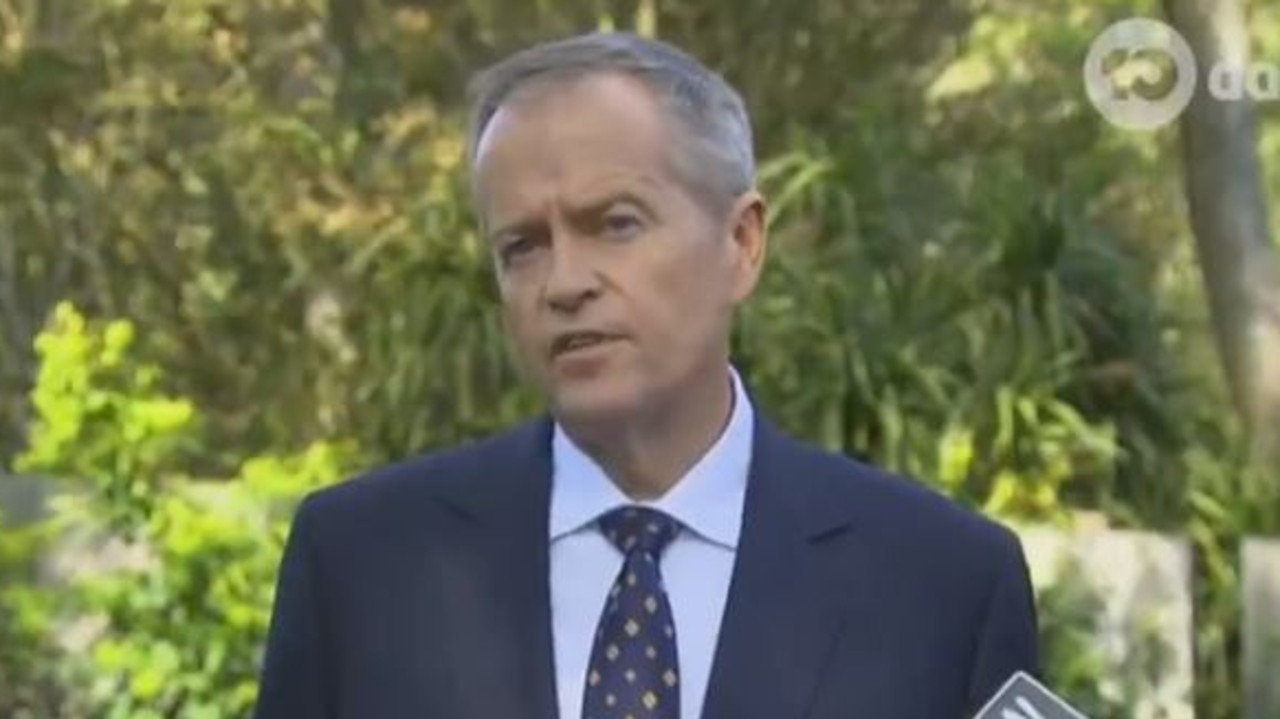
It came after Mr Morrison finally ended speculation over the federal election date, marking the beginning of the election campaign for the two candidates.
Speaking from Parliament House this morning, the Prime Minister said: “Earlier this morning, I visited the Governor-General here in Canberra and he accepted my advice for an election to be held on 18 May.”
The timing of this announcement is no accident. Mr Morrison has basically given himself blanket airtime across breakfast TV and radio to spruik his party’s campaign message while most of the nation is tuning into the morning headlines.
Throughout this morning, every free-to-air TV channel has covered the Prime Minister’s every move in Canberra.
Elections are traditionally called on a Sunday, but the former marketing man has held out until a weekday, guaranteeing more attention for his message to voters.
“We live in the best country in the world,” Mr Morrison said. “But to secure your future, the road ahead depends on a strong economy. And that’s why there is so much at stake at this election.”
He commended his government for delivering the “first budget surplus in more than a decade”, saying the Liberal Party would keep unemployment down, secure borders and guarantee funding for schools, hospitals and infrastructure.
He then took aim at the Opposition, painting the Labor leader as untrustworthy.
“You will have the choice between a government that is delivering a strong economy and will continue to do so, or Bill Shorten’s Labor Party, whose policies would weaken our economy,” Mr Morrison said.
“It’s taken us more than five years to turn around Labor’s mess. Now is not the time to turn back. Keeping our economy strong is how we secure your future, and your family’s future.”
He accused the Labor Party of “turning a $20 billion surplus into a $27 billion deficit” and “turning strong borders into weak borders”.
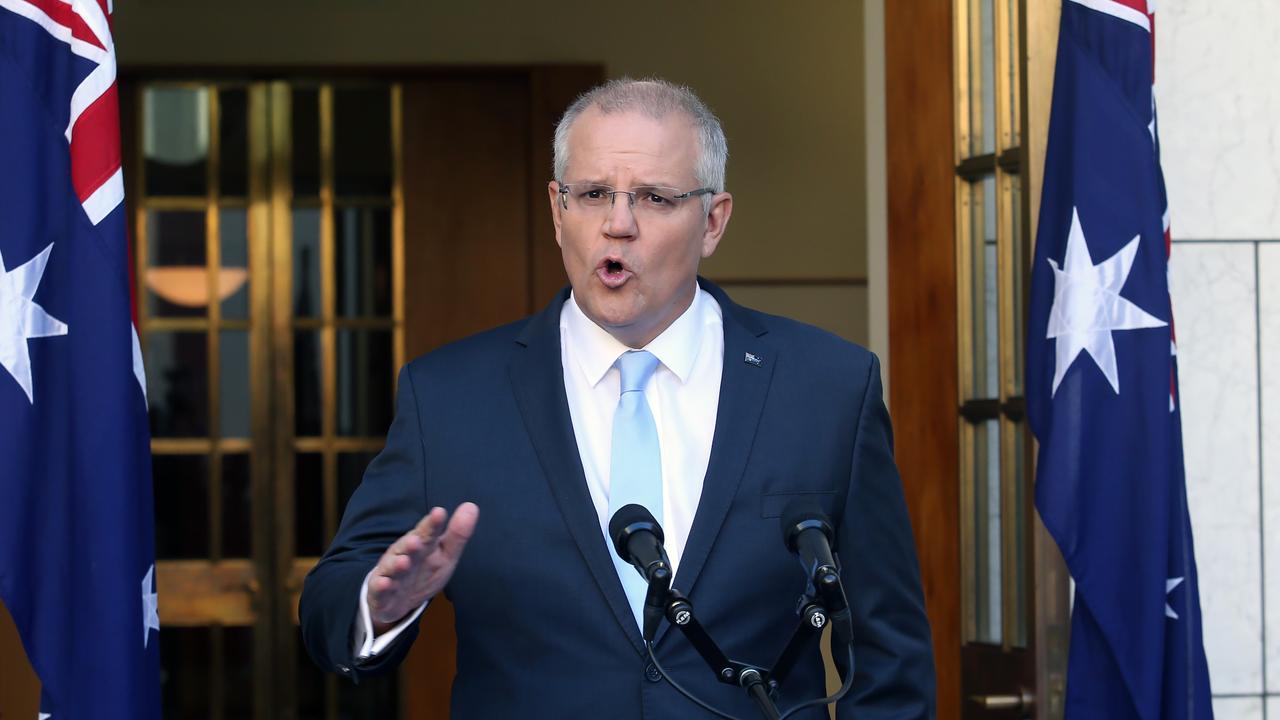
Taking questions, Mr Morrison skirted around a suggestion from a reporter that his government was unstable.
He said the government had delivered on bringing unemployment down, bringing a stronger economy and increasing funding for schools and hospitals.
“The choice that is going to be made by Australians on May 18 is like it always is at every election. Who do you trust to deliver the strong economy which your essential services rely on? Who do you trust to deliver the strong economy and the budget management that these services can be funded?” he said.
Asked to explain the Liberal Party’s six-year history of toppling leaders, the Prime Minister said: “That’s why after I became Prime Minister we changed the rules in the Liberal Party … and those rules say that if I’m re-elected as PM, then I will serve as your PM because the rules have been changed to prevent the things that have happened in the past.”
Next will come the election campaign, which will run for about five weeks, before voters head to the polls. A minimum of 33 days is required for the campaign, which will see the party leaders hit the streets and pull out all the stops.
Last night, Mr Morrison tweeted an almost-two minute video featuring his wife and kids, in which he talks up the Government’s economic record.
“The choices my girls will have over the next ten years — even over the next three years will set up,” he says in the video.
“See the decisions you make in one term of government last for a decade or more.
“So it isn’t just about the next three years, it’s about what does the next decade look like.”
I’m proud of how far our country has come over the past few years. And I know there is still more work for us to do to make life better for all Australians. My vision for Australia is about everyone having the chance to realise their full potential. pic.twitter.com/KJyRSj6zPz
— Scott Morrison (@ScottMorrisonMP) April 10, 2019
It comes days after Mr Morrison and Mr Shorten each announced their respective party’s plans for the 2019-20 Budget.
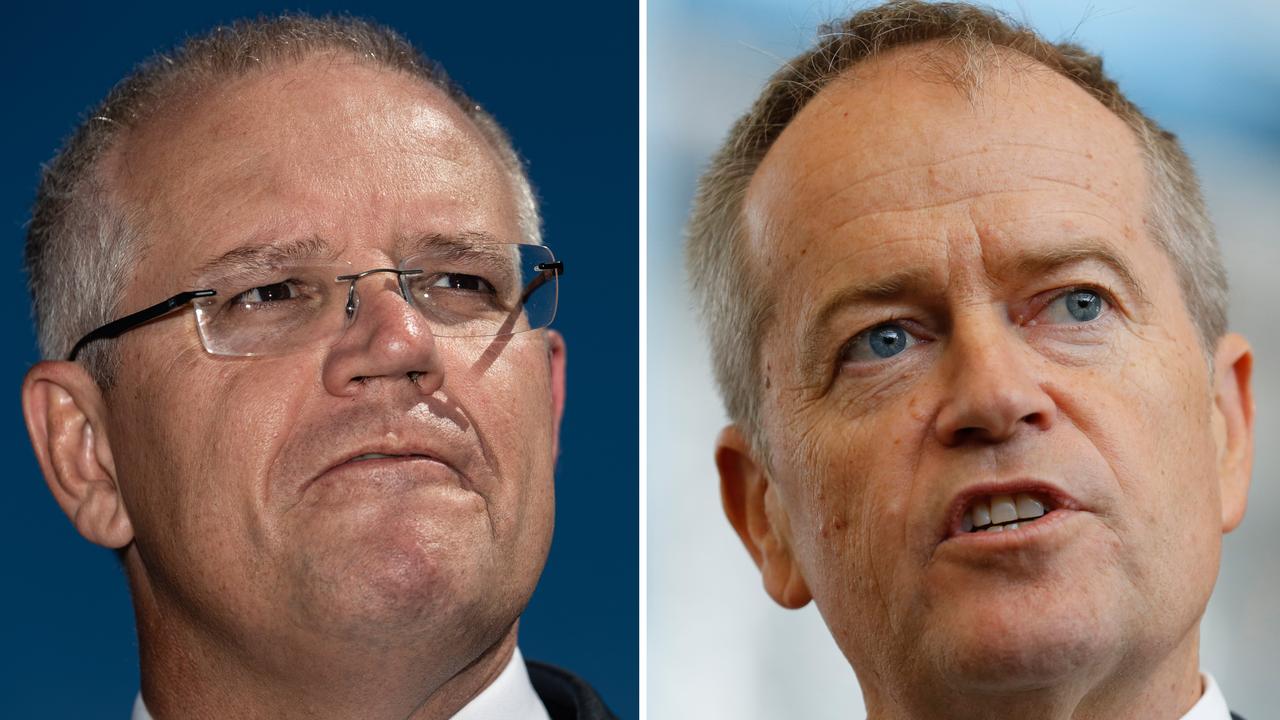
WHY MAY 18?
There are several reasons Mr Morrison is believed to have chosen May 18 as the federal election date.
For weeks leading up to the announcement, the government hit Australians with countless political advertisements spruiking the government’s promises on infrastructure, tax cuts and education.
This is allowed until the election is officially called, at which point approval is needed from the Opposition to continue campaigns.
The Labor Party accused the government of deliberately delaying the vote so it could continue pushing its ads at the Australian taxpayer’s expense, and thereby avoid the Liberal Party having to pay for these political ads themselves.
Earlier in the week, publicly-listed advertising contracts revealed the Morrison government had spent $136 million this year alone in advertising and marketing research. Labor estimated the cost at over $600,000 a day, or $4.2 million a week.
The Government hit back noting that Labor put millions of taxpayer dollars into its own advertising in 2013.
This isn’t the only possible reason for the May 18 date. A Daily Telegraph analysis notes the timing of the announcement, which came shortly after the Morrison government received a two-poll Newspoll bounce.
Likewise, a shorter campaign is easier to fund, with the five-week battle coming in at just over the minimum 33-day campaign period.
THE HEAD-TO-HEAD BATTLE
Off the back of its almost-successful “Mediscare” campaign in 2016, Labor is again seizing on health as the key issue for the May election.
Mr Shorten on Thursday unveiled what he described as the most important investment in Medicare since Bob Hawke created it — a plan to fund six million cancer scans, bulk-bill an extra three million cancer specialist appointments and guarantee every drug recommended by independent experts gets on the Pharmaceutical Benefits Scheme.
Health consistently emerges as the top issue for voters when it comes to elections and will undoubtedly be a hot-button topic this time around. While the Coalition is rated favourably on national security and the economy, Labor scores better on health and education.
In contrast, The Liberals are peddling trust and economic stewardship as the hallmarks of the party’s leadership.
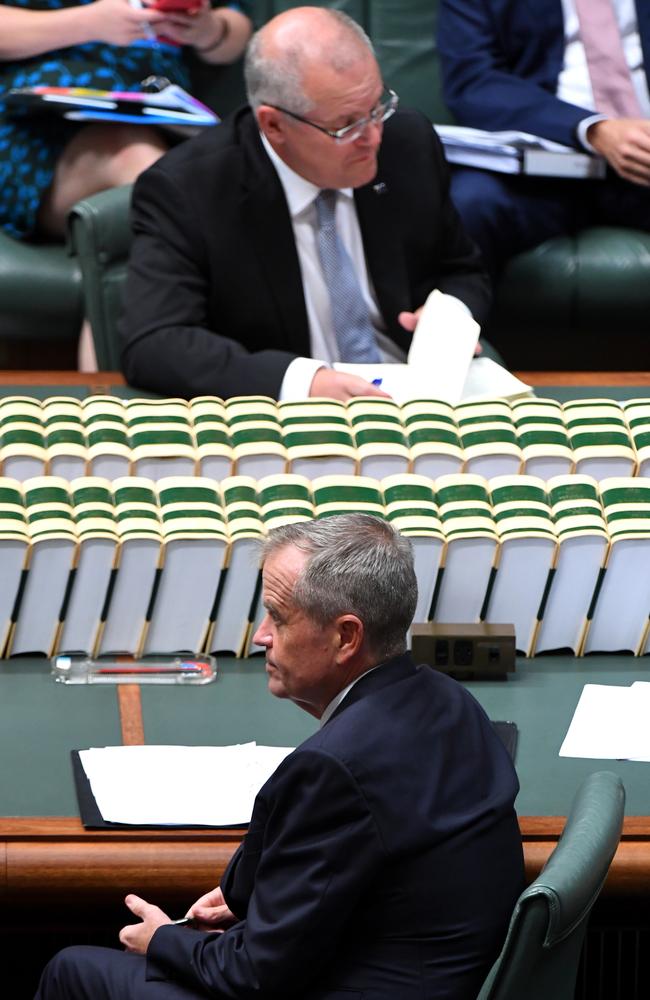
The Coalition’s Budget on April 2, which matched Labor’s unfreezing of Medicare rebates and sought to neuter Labor’s appeal to low- and middle-income earners, set up attack points on a surplus, tax reform and infrastructure. The Coalition is also expected to campaign heavily on Labor’s higher tax for higher income earners and Mr Shorten’s unpopularity. A key strategy in the Coalition’s armoury will be exploiting polls data that suggests voters have a dim opinion of Mr Shorten as a leader and are suspicious of his unionist background.
With the addition of a new ACT seat, 151 MPs will be elected along with half of Australia’s 76 senators. To win majority government, either party needs to win 76 seats in the House of Representatives. The Coalition goes into the election holding 74 lower house seats; Labor has 69. Labor needs to gain seven seats on a uniform swing of 1 per cent from the 2016 election. After a redrawing of electoral boundaries and the Wentworth by-election, the Coalition starts notionally with 73 seats with Labor on 72.
WHAT THE POLLS SAY
The April 8 Newspoll put Labor ahead of the Coalition, on 52 per cent to 48 per cent two party-preferred, but an Ipsos poll that same day showed a stronger lead of 53 to 47.
The Newspoll results showed Mr Morrison’s rating as preferred prime minister lifted three points to 46 per cent, well ahead of Bill Shorten on 35 per cent.
Mr Shorten has consistently slagged behind both Malcolm Turnbull and Mr Morrison as preferred prime minister, despite Labor leading the Coalition in two-party terms for more than 1000 days.
Mr Morrison has had less than a year to boost the government’s popularity since claiming the leadership of a party driven by personal vendettas and infighting over key policy.
In contrast, Mr Shorten has guided Labor since its big election loss in 2013, using methodical policy announcements aimed at reducing generational inequality and combating climate change to boost his party’s popularity, even as surveys show he’s not personally popular with many voters.
“Voters seem impressed that Labor has tried to present a vision for how Australia should look and has presented detailed policy,” said Paul Williams, a political analyst at Brisbane’s Griffith University, told Bloomberg.
“Despite the fact he remains unpopular with most voters, Shorten seems to have grown into the job.”
After he delivered Labor’s Budget reply on April 4 in the House of Representatives, Mr Shorten was drawn on his “lacklustre” popularity by 7.30 host Leigh Sales
“Wait until you meet me and see our fair go plan in action,” he said when asked what he would explain that to the average Australian voter.
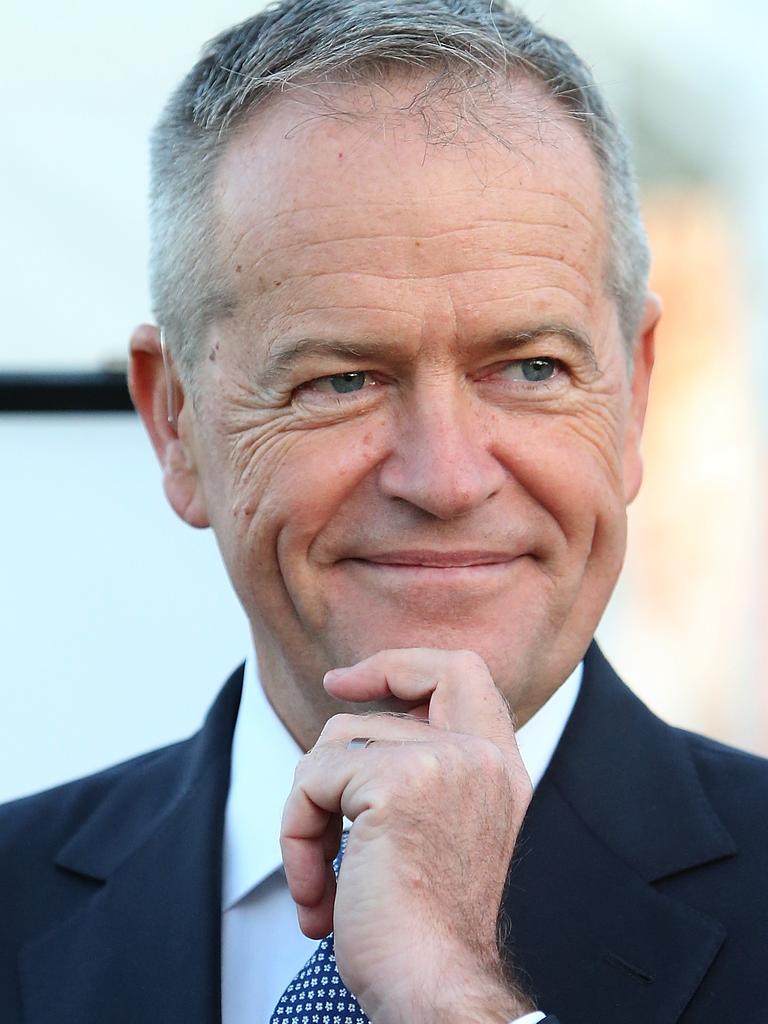
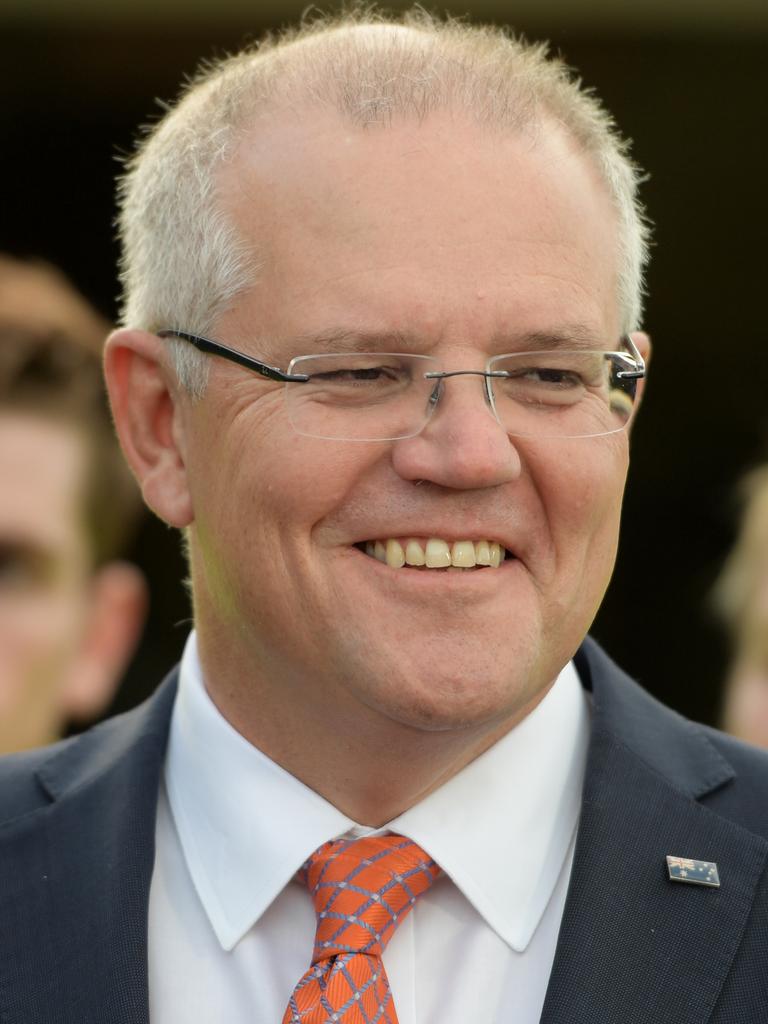
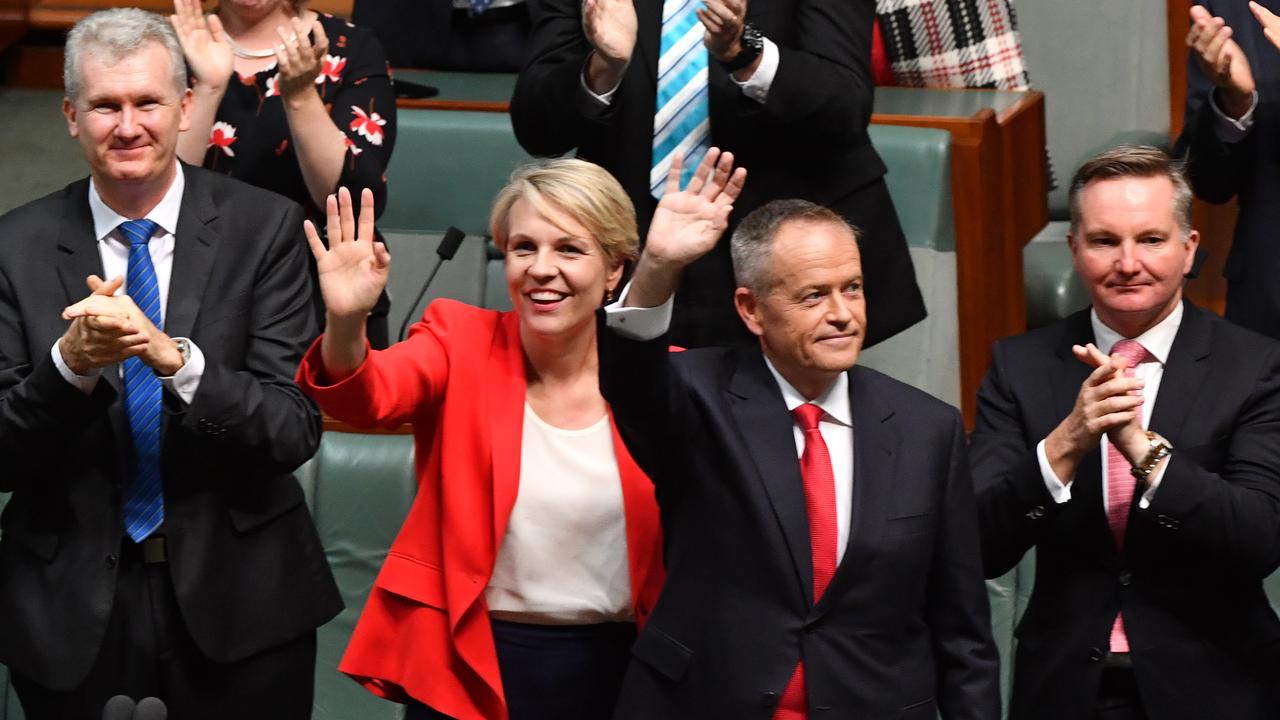
KEY SEATS TO WATCH
There are 151 seats up for grabs in the 2019 election, but some matter more than others, with the results of about 16 electorates across the country acting as indicators for which side is likely to win. Among them is the marginal NSW mid-north coast seat of Cowper.
Former independent MP Rob Oakeshott, who helped deliver Julia Gillard minority government in 2010, is taking another shot at returning to parliament and vying for the seat in the wake of Nationals MP Luke Hartsuyker retiring. He faces the Nationals’ Patrick Conaghan, and could benefit from Labor and Greens preferences.
The Liberals controversially preselected former Labor national president Warren Mundine for the NSW South Coast seat of Gilmore being vacated by MP Ann Sudmalis. The man who was to be the Liberal candidate, Grant Schultz, is standing as an independent with the support of some disgruntled local party members. The Nationals are standing former NSW minister Katrina Hodgkinson. Given the 0.7 per cent margin, Labor’s Fiona Phillips is hopeful of winning the seat amid the coalition chaos.
In Queensland, Home Affairs Minister Peter Dutton has held the seat of Dickson since 2001, but the margin has narrowed after the 2016 election and subsequent redistribution. The mortgage-belt seat covers Brisbane’s northwestern suburbs and encompasses some rural areas. Grassroots campaigning by GetUp and others is putting pressure on Mr Dutton, who was hit by a 5.1 per cent swing away from him in 2016. Labor’s Ali France is hopeful of doing well, but will require a strong showing from the Greens’ Benedict Coyne to win.
Victoria Health Minister Greg Hunt will battle ex-Liberal Julia Banks, who is giving up her seat of Chisholm to run as an independent for Flinders. A redistribution has chipped away at Mr Hunt’s margin, but he’s held it since 2001 and is a born and bred local. Green, Labor and minor party preferences could benefit Banks.
— with Sam Clench and AAP

